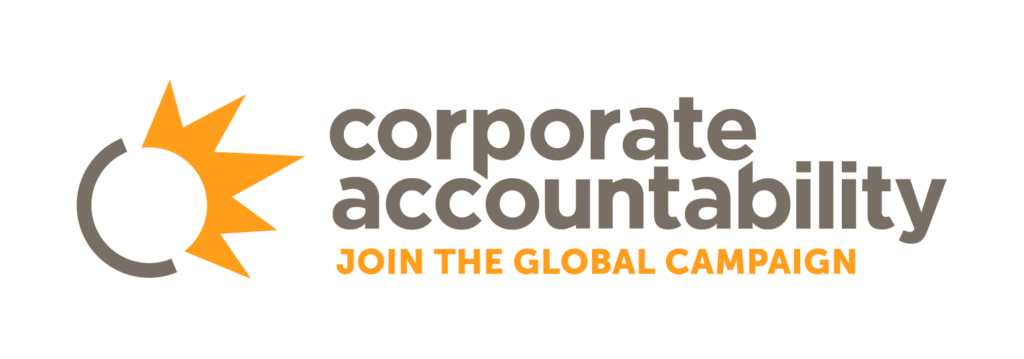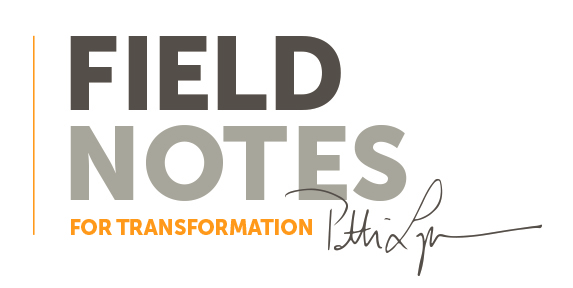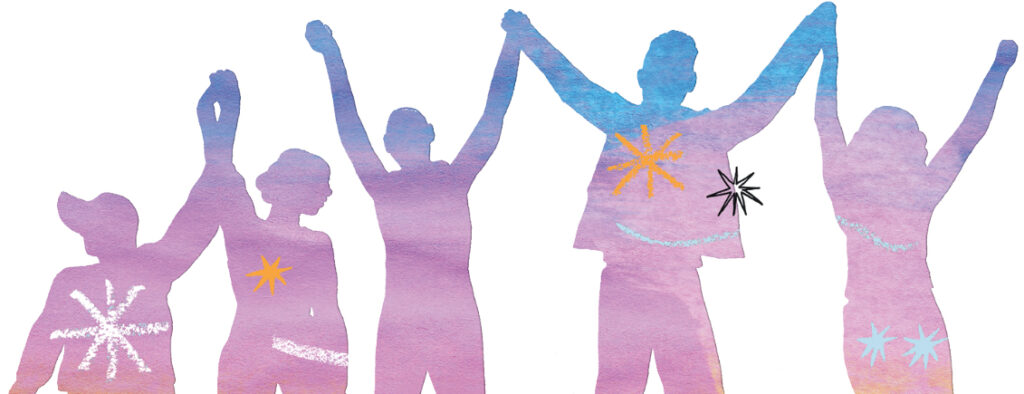

We’ve got us: Thriving through sustained disruption with meaningful relationships
Dear friend,
In the early days of the pandemic, Claudia (not her real name) and I would stand outside her building and talk for a while when I dropped off her groceries. Our voices muffled by masks, we traded stories of how we were each coping. We had met each other through our neighborhood’s mutual aid project, and in those conversations I learned that her toddler loved strawberries, that Claudia had been a school teacher before she immigrated to the U.S., and that she was fiercely determined to make a life for herself and her daughter even in these extraordinarily difficult times. We continued to stay in touch even after she was able to resume her own grocery shopping. I am grateful for the chance to know her and for the many other human connections I made or deepened through the pandemic.
As vaccination rates rose and restrictions eased in the Boston area, I reflected on the importance of these connections. I’m keenly aware that the pandemic still rages in some states and across much of the world—and things could change at any moment, here or anywhere. The conditions created by racial capitalism—the climate crisis, vast economic inequality, political polarization, increased erosion of human rights, and more—point to continued disruption for years to come. I believe it is the strength of the relationships we have with each other that will determine how well we will get through the difficult times that are surely ahead.
Corporate Accountability is working at the heart of the problem: challenging the transnational corporations that drive brutal and extractive capitalism. What’s become clear to me in conversation with partners like you, our allies, and our staff is that we must do this work not only with our usual fierce determination and smart strategy—we must also campaign with radical love, putting connections and relationships at the center. This is how we will survive, and this is how we will win.
Disruptions open the way for transformative change
The disruptions we experienced over the past two years have led to dramatic shifts in conversations, expectations, and outcomes. The pandemic, the uprising for Black lives, climate-related disasters like the wild fires in the West and the failure of the grid in Texas during the severe winter storm—these events and others have opened up conversations and shifted people’s thinking on issues from universal healthcare to police violence to tackling the climate crisis and more.
On the issue of climate, we and our allies have seized this shift in public perception to advance the call for liability and accountability of the fossil fuel industry. As a result, we are seeing dramatic changes in the way the U.S. public understands the role of Big Polluters in fueling the crisis. And we see an increased demand to hold them accountable.
This is cause for hope. As author, historian, and activist Rebecca Solnit writes, “Each shift makes more shifts possible. But only if we go actively toward the possibilities rather than passively into the collapse.” Indeed, with disruption after disruption, crisis after crisis, more and more people are recognizing that the systems we live under are untenable.
The road map and the compass
But humans are not wired to be in crisis all the time. It is exhausting and unsustainable. So how do we ensure that we have the energy and ability to seize the opportunities for transformation that future disruptions will bring? Grace Lee Boggs, who spent most of her 100 years on this earth as an activist, community organizer, and philosopher has a clear answer: “The only way to survive is by taking care of one another.”
This might be one of the first things we learned as a species, and it’s what our ancestors and elders passed down from generation to generation. Today, for many people, this wisdom has been buried under the corporate-driven, white supremacist focus on individualism and self-sufficiency.
Nevertheless, centering community care is still very much alive today. Black and Indigenous people and people of color from multitudes of cultures, communities, and countries have survived in the U.S. by taking care of each other. The concept of mutual aid has always been an important component of disability justice and transformative justice work. And for me, growing up as a white working class kid, the idea that you help your neighbors out when they need it and they help you out when you need it was deeply ingrained in me. This way of being provides a road map for many communities navigating a hostile world.
And if that’s the road map, then perhaps radical love is the compass. Michél Legendre, a long-time Corporate Accountability organizer and leader and now campaign director at Worth Rises, talks about radical love as the pursuit of justice and liberation grounded in love. Radical love is the commitment to do the hard, uncomfortable, painful, and joyous work that will ultimately get us free from oppressive systems. Michél and I share a deep appreciation of bell hooks’ writings, and in All about Love, hooks writes: “When we choose to love we choose to move against fear—against alienation and separation. The choice to love is a choice to connect—to find ourselves in the other.” I believe when we find ourselves in the other, we can get clear on how we best take care of each other.

Challenging corporate power in deep relationship
For all of Corporate Accountability’s history, we have partnered with allied organizations around the world and around the country. Today, we continue this practice while honestly assessing and working to shift how white supremacy and Global North dominance affects the ways we show up in these relationships.
Our partnership with Corporate Accountability and Public Participation Africa (CAPPA) is an example of how we are doing this well. Akinbode Oluwafemi, the executive director of CAPPA, and I have known each other and campaigned together for more than two decades. I personally, and we as an organization, learn so much from Oluwafemi and his team. And the work of both our organizations advancing water and climate justice and challenging the tobacco industry globally is made more powerful by the decades of trust we have built with each other.
I hope that all our current partnerships will last as long, be as deep, and center trust and care as our partnership with CAPPA has—from organizations like Action Center on Race and the Economy and Food & Water Watch, with whom we work on U.S. water issues, to organizations like Friends of the Earth International and Global Forest Coalition with whom we work to hold Big Polluters liable, and many more.
We do this work not only in partnership with allied organizations and movements, but also with people like you who give generously to power this work. We have always prioritized relationships and relationship building, but they have taken on an even greater importance in these disruptive times. I cherish the ways we have been able to connect with members like you this year—from virtual meetings to virtual celebrations.
And, I see your financial gifts as a form of both radical love and mutual aid. Over the past few years we have become increasingly more intentional about raising funds for our allies on the front lines of corporate abuse. We approach fundraising from a lens of abundance, not scarcity or competition—trusting that asking you to fund both our work and our allies’ work will result in greater impact, trust, and resources for all of us. And your generosity over these past few years have proved us right. Thinking about resourcing with the frame of abundance and sharing is also part of what will get us through the disruptive times ahead.
What radical love makes possible
By engaging in these practices I trust that we will—all of us together—create more shifts and transformation. We will clear corporate power and influence out of the way through strategies like holding Big Polluters liable. We will continue to affect the bottom line of corporations so it becomes more expensive for them to continue their abuses than to end them. And we will shift the narratives of what’s possible so that community-based, people- and planet-first solutions are lifted up and implemented, rather than corporate-driven, individualistic, harmful “solutions” that keep the status quo in place.
Through it all, we will do our best to hold ourselves accountable to the practices of radical love and collective care. We will move at the speed of trust, as adrienne maree brown says, and make room for the messiness inherent in all of this work. I take so much inspiration from brown, who writes in her latest book, Holding Change:
“We are at a very particular moment in human history, a period of time when we need to shift away from the competitive, directive, combative, colonial energy of toxic leadership at every level of society. The structures built to pierce the sky, the walls conjured to make the earth a puzzle of combating territories, keeping some in power and others without it…all of these structures of crumbling. It is time to move towards ways of being that are focused on listening to each other deeply and accepting each other, whole.”
This is what we aim to do in every aspect of our work. I know this is how all of us will not just survive, but thrive in the times ahead. I’m enormously grateful to be doing this work side by side with you, our allies, our staff, and our board, dedicated to creating transformative change through radical love.

Onward,

Patti Lynn, Executive Director






